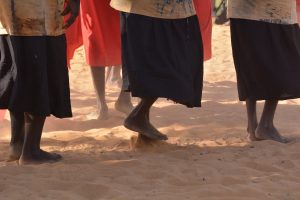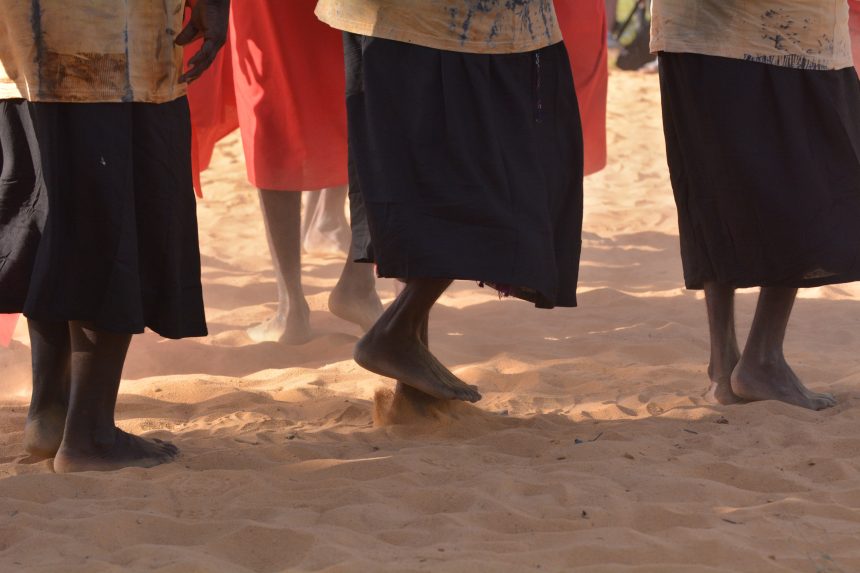Being Indigenous can lead to greater difficulties having a family member with disabilities. There are many different reasons as to why this is, yet one of the more significant factors is the isolation suffered by Indigenous communities. They don’t have the access that many in more populated areas do.
(It is important to note from the outset, that the situation in cities, particularly the Eastern seaboard, is very different than for more remote areas, which is the focus for this article).
A major concern, however, is a fear of the system. For some, there is the underlying fear that they will be treated differently, ie institutional racism. People believe that if they attempt to go through ‘the system,’ as it were, they will be branded bad parents and have their loved one removed from the community. This does happen, especially those with high needs. Many homes are overcrowded and local services are poor.

Indigenous Australians aboriginal women in a cultural ceremony dance.
Some also have a fear of outside help. There is a dichotomous relationship between the ‘awareness’ of disability and ‘conceptualisation’ of disability services. Many believe that the family should fulfill the caring role. And yet families are struggling to cope.
The NDIS is also complex. It is too much for many people to navigate. This applies to those from low socio-economic areas, no matter the background. It is important that the NDIS access barriers in the system, particularly those from Indigenous backgrounds.
One other important factor here is that according to the Australian Bureau of Statistics, in 2009, 14 percent of Indigenous people under 14 had a disability, compared with 7 percent of non-Indigenous people.
Comprehensive studies have been difficult however. The Australian Indigenous Health Bulletin identifies 12 factors from a 2016 study that can influence the participation of Aboriginal disability services.
- Conceptualising Disability
- Family and Kin
- Colonisation and Trauma
- Racism
- Choice of Workers
- Choice of Organisations
- Community Connections
- Trustworthiness of mainstream services
- Multiple Agency Intervention
- Trusting Workers
- Mobility
- Affirmative Action Policy
There is much to be done on many levels. While these issues are complex and require State and Federal intervention, here at PHM Health we believe that all people are entitled to efficient, caring and respectful services. It matters not, a person’s background, gender, ability level, age or anything else is. Get in touch with us and we can talk you through it. We are here to help.


Leave a Reply